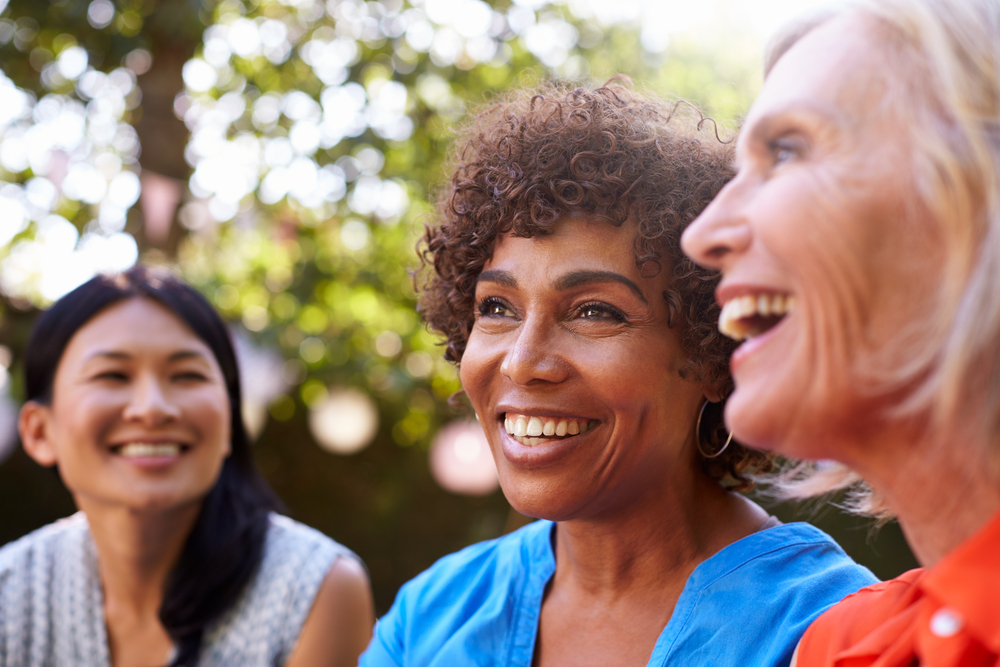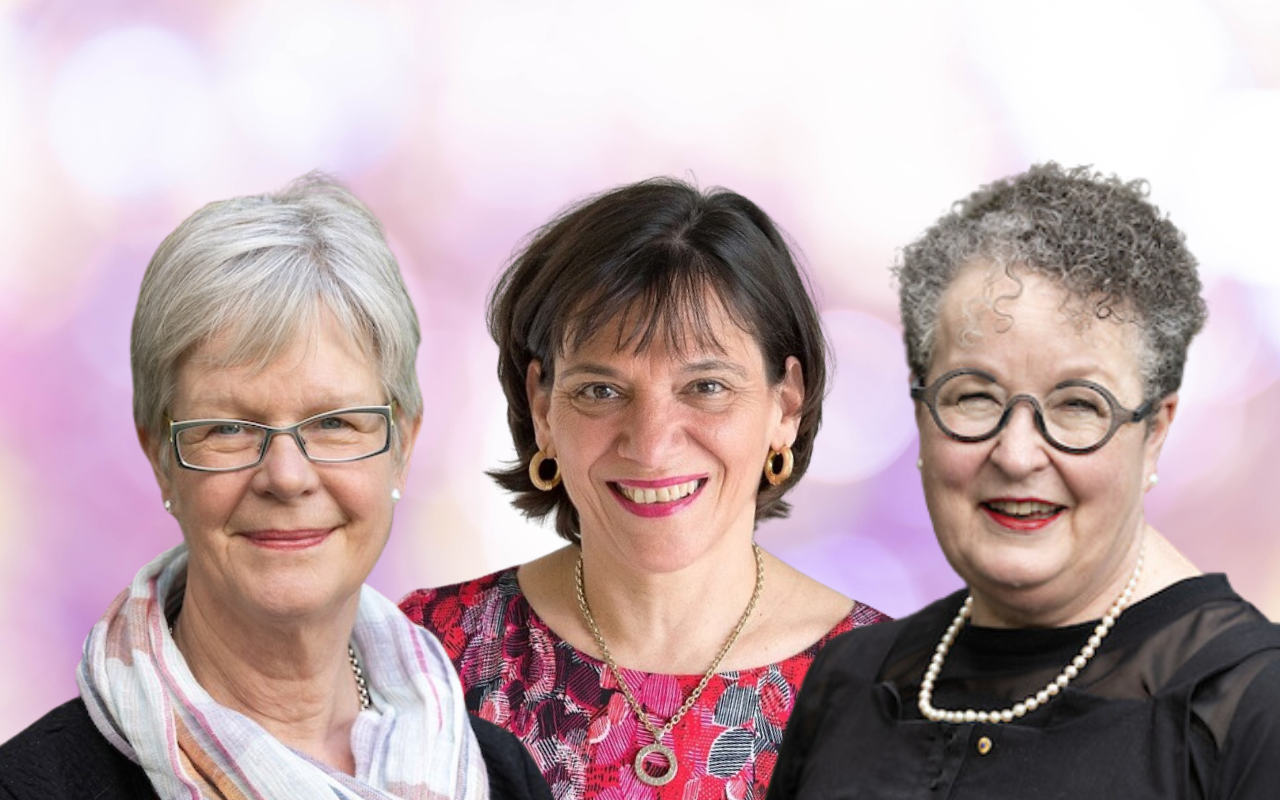A new series of educational videos could be a useful tool for GPs who want to empower midlife women with knowledge to help them stay healthy for longer.
Australian women’s life expectancy is now around 85 years and women over the age of 50 are one of the fastest growing demographic groups. Healthy habits at midlife improve the chance of good overall health during ageing.
Healthy ageing depends on complex interactions between biological, environmental, socio-economic, and cultural factors. Some of these factors are beyond personal control. Others, including smoking, poor nutrition, weight gain, and lack of physical activity, are potentially modifiable. Because these factors increase the risk of chronic conditions such as type 2 diabetes, joint pain, and cardiovascular disease, people need self-care strategies for optimising health in midlife to increase their chance of healthy ageing.
People increasingly use the internet for health information. We assessed the accessibility of the information on 16 Australian websites with health information for women in midlife and found that there is a gap in accessible online information about menopause and midlife health for Australian women from culturally and linguistically diverse backgrounds and those with low health literacy.
To address this gap and promote positive health behaviours in women in midlife, a series of evidence-informed, accessible, short, explanatory animated videos viewable on YouTube were developed by the NHMRC Centre of Research Excellence on Women and Non-communicable Diseases (CREWaND) research translation team. The videos convey positive messages about self-management of menopause symptoms, joint health, and mental health. The videos are narrated, have subtitles and are available in English. The menopause and joint health videos are also available in Vietnamese and Simplified Chinese.

Menopause health videos
“What is menopause?” explains the physiology of menopause, common menopause-related symptoms and how they can be managed, positive aspects of menopause, and includes a recommendation to seek medical advice if symptoms are severe. “How to stay healthy after menopause” offers practical steps women can take to optimise their health during the menopausal transition and in later life.
Joint health videos
“Slowing weight gain to reduce joint pain” and “Maintaining weight for joint health” give practical advice on managing joint and back pain and describe simple strategies to reduce joint pain by avoiding weight gain. “Avoiding unnecessary imaging for joint and back pain” dispels the myth that imaging is needed to investigate and diagnose joint and back pain and explains that imaging adds costs and worry, and can result in delays getting the most appropriate treatment. “Avoiding opioids for back and joint pain” describes the possible side effects of opioids and how dependence and withdrawal symptoms can develop even after a relatively short time. It also offers tips on how to deal with back and joint pain without using opioids including by staying active, trying to continue normal activities, and avoiding weight gain. “Healthy joints, healthy heart” explains that people who experience joint pains are twice as likely to die of a heart attack or stroke in later years than people who don’t have joint pain and why joint pain can be a wake-up call to improve both joint health and heart health. The video encourages people with joint pain to talk to their doctor about general health and ask for any recommended tests to check their heart health.
Mental health videos
The series of mental health videos was co-designed with people with lived experience of mental health problems. “What is mental health?” and “Why does our mental health matter?” explain that mental health is about how we feel and our thought processes and gives examples of things that can affect mental health. The videos also describe the benefits of good mental health and how to recognise signs of poor mental health. “Looking after our mental health” offers eight practical tips on how to look after our mental health, including staying connected with people and engaging in activities that give a sense of purpose. In “How do I know if I have a mental health problem?”, we explain that feelings of hopelessness, loneliness, sadness, and worry that interfere with daily life can be signs of a mental health problem. Examples of life circumstances that can contribute to mental health problems are discussed and advice given on helpful ways of thinking about problems that can improve how we feel. “Pain and mental health” addresses the mental health implications of chronic pain and explains the body–mind connection. The video offers five practical tips on how to manage chronic pain to reduce its impact on mental health.
A new tool in the health promotion toolbox
Poor health literacy can affect capacity to make informed decisions about health and health behaviours. The videos were developed to meet the needs of women who may have limited health literacy, and who therefore may not be reached by written health messages. This was based on evidence that video animations show promise as patient information tools, particularly for effects on knowledge. Helping patients help themselves through self-management can improve clinical indicators, health-related quality of life, and confidence to self-manage. We hope the videos will be a useful tool for GPs who want to empower midlife women with knowledge to help them stay healthy for longer.
Dr Karin Hammarberg is senior research fellow at the School of Public Health and Preventive Medicine at Monash University.
Professor Flavia Cicuttini is head of the musculoskeletal unit at the School of Public Health and Preventive Medicine Monash University and head of rheumatology at the Alfred Hospital.
Dr Heather Craig is an early career researcher, interested in mind–body medicine, and psychosocial health/wellbeing. Heather lives with complex mental health issues, and her research work gives her a sense of meaning and purpose.
Ann MacRae is an early career researcher in health and social care specialising in trauma and attachment. She is currently undertaking a PhD through Monash University on trauma-informed care within a residential aged care setting.
Dr Mridula Bandyopadhyay is a Health Research Translation Fellow at the University of Melbourne. Her focus is on engaging communities in co-designing/co-creating accessible health education for health self-management and disease prevention.
Professor Jane Fisher is Finkel professor of global health and co-director division of planetary health at School of Public Health and Preventive Medicine at Monash University.
The statements or opinions expressed in this article reflect the views of the authors and do not necessarily represent the official policy of the AMA, the MJA or InSight+ unless so stated.
Subscribe to the free InSight+ weekly newsletter here. It is available to all readers, not just registered medical practitioners.
If you would like to submit an article for consideration, send a Word version to mjainsight-editor@ampco.com.au.

 more_vert
more_vert
Great comments from all the GPs- thank you! Pretty tired of hearing who has invented the wheel most recently.😂
It beggars belief that a tool that is ostensibly made *for* GPs has been made entirely *without* GPs. I just cannot fathom the thinking process here. Yet another example of non-GPs taking wild guesses at what our jobs entail. As a specialist GP/rural generalist, I have had enough. Professor Louise Stone nails it!
Very interesting framing. No issues with resources for any patient group and no issue with maybe the question – what do you GPs think.
Big issue with the implied message that obviously GPs dont know enough …. How many GPs were part of this ‘ research ‘ again ?
Ask any GP and they would have identified the mentioned issues without blinking an eye – it is OBVIOUS knowledge.
thank you for the resources – just be a tad more respectful of GPs next time round maybe – but given the current delight in GP bashing, highly unlikely. And THAT taints the resource for me.
Agree with the above comments @ Professor Louise Stone and Dr Brenner. No doubt another fragmented offering of menopause clinics. Ignoring General Practice and primary care is against every bit of health systems research. Need some serious systems thinking about what constitutes a good integrated health system. The immediate past president of the Australian Menopause Society was a GP Dr Karen Magraith. .
Looking for the GP input. Sadly, but not surprisingly, lacking.
While it may seem helpful for researchers to drop resources on our heads, as GPs that’s quite a frustrating approach to take. It always feels slightly colonial, the researchers on the high ground giving us resources that they are sure will be “good for us”.
It’s even more frustrating when every second day I seem to have someone in allied health or nursing tell me I shouldn’t be afraid of collaborating, or undertaking interprofessional learning or being managed by a non-doctor. I always find it ironic that the people who tell me I should collaborate are often exactly the people to exclude me from the research that is supposed to benefit me and my patients.
We are not simply “glorified referrers” and we are not passive recipients of education. We have our own knowledge, skills and capacities, particularly in educational design and delivery. We see the majority of the women’s health in the country, and most of us, lets face it, are midlife or over (or will be soon).
It is beyond frustrating to have half of any given journal creating resources, modifying curriculum or even simply telling us to pull our socks up assuming GPs are passive learners with nothing to offer.
Could future authors consider this please? This group is Melbourne where there are ample options to connect with outstanding GP researchers, especially in women’s health where the irony is there is a team who actually wrote our main textbook on the subject. Perhaps it is worth noting that we see a large swathe of the community not known to other providers.
Our lived experience as clinicians matters. Our patients matter. Please don’t ignore our expertise. Or I will have to keep banging on about it, and frankly, we’ve all had enough
Louise
Has anyone asked us GPs if such a tool would be useful or well-received? I’m so tired of being told we don’t treat menopause or lifestyle medicine or mental health appropriately when to be honest we (female GPs) spend most of our time doing exactly this. Does anyone even understand what GPs do anymore or that we’re actually professionals and doctors?